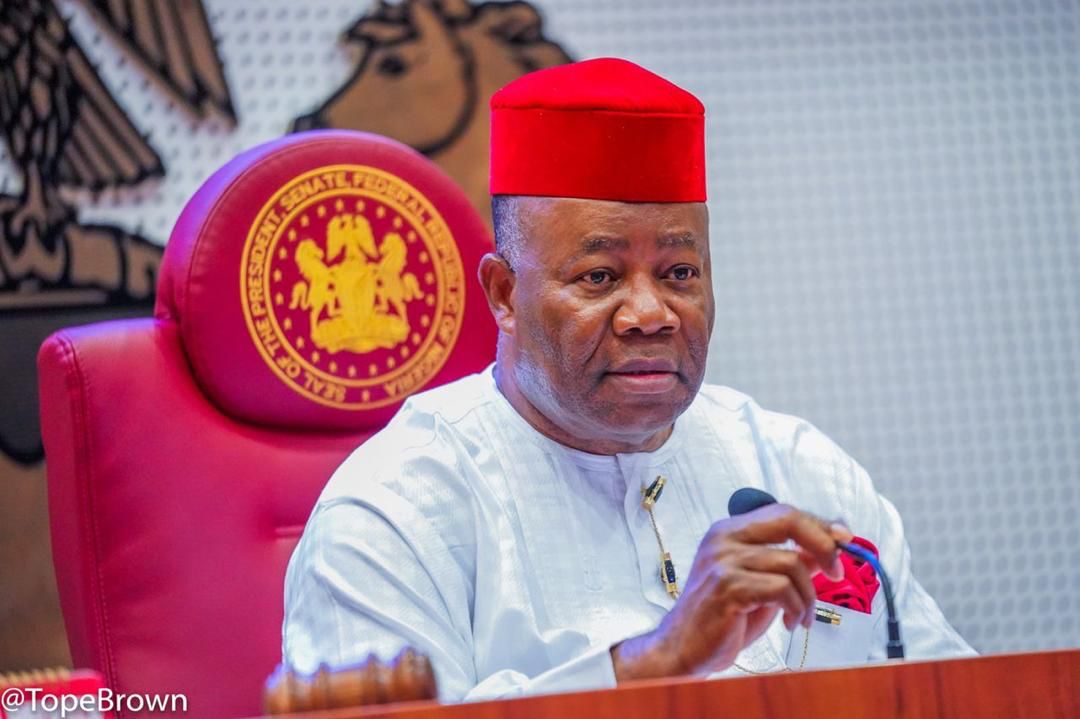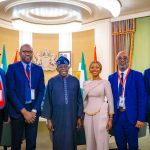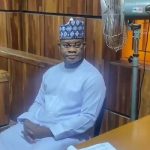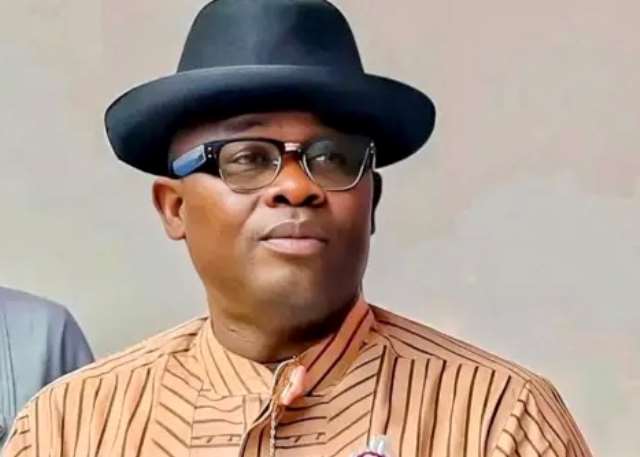As the debate on Nigeria’s tax reform bills heats up, Senate President Godswill Akpabio has sounded a warning that the country urgently needs to adopt forward-thinking approaches to taxation for economic growth.
According to him, holding on to outdated fiscal policies will have devastating consequences.
Describing the bills as the future of Nigeria, Akpabio said the bills now being scrutinized at the National Assembly have a critical role to play in Nigeria’s economy.
The Senate President made the statement on Monday while declaring open the public hearing on the tax reform bills submitted to both chambers of the National Assembly by President Bola Tinubu on October 3, 2024.
The public hearing, held at Room 022 of the Senate Wing, saw the presence of key government officials including Minister of Finance and Coordinating Minister of the Economy, Mr. Wale Edun, the Attorney General of the Federation, Chief Lateef Fagbemi (SAN), and Chairman of the Federal Inland Revenue Service (FIRS), Mr. Zacch Adedeji.
Also in attendance are the Comptroller-General of the Nigeria Customs Service and the Senate Finance Committee Spearheading the Reform Process.
The four tax reform bills under consideration include the Nigeria Tax Bill (NTB) 2024, the Nigeria Tax Administration Bill (NTAB) 2024, the Nigeria Revenue Service (Establishment) Bill (NRSEB) 2024, and the Joint Revenue Board (Establishment) Bill (JRBEB) 2024.
The bills were passed for second reading in the Senate on November 28, 2024, and referred to the Committee on Finance for further legislative scrutiny.
Akpabio stressed the need to get the reforms right, assuring that the Senate would not rush the process but would conduct a thorough clause-by-clause review before passing the bills.
He promised that once the bills are passed, the National Assembly will strengthen its oversight functions to ensure that government resources are spent efficiently and transparently.
Akpabio noted that not more than 30% of Nigerians pay tax, yet citizens expect the government to provide world-class infrastructure, quality education, and national security.
He stressed the importance of informed discussions on the tax reform bills, noting that many critics had not even read the content before opposing them, urging Nigerians to constructively engage with the bills, rather than relying on social media misinformation.
He said: “I will be here for two days, actively participating in the process because I am tired of social media narratives. Many of our leaders have not even seen the content of these bills before attacking the process.”
Akpabio urged participants at the hearing to engage with the bills in a more informed and constructive way, by obtaining copies, studying them carefully, and providing thoughtful input.
This approach, he said, is far more valuable than relying on misleading online discussions, which he succinctly dismissed as “garbage in, garbage out”.
Sen. Sani Musa, the Chairman of the Senate Committee on Finance, shed light on the bills being considered during his opening address.
He said that deliberations would focus on the Joint Revenue Board Establishment Bill and the Nigerian Revenue Services Bill over the course of two days.
According to Musa, 71 different stakeholder groups have been invited to contribute to the public hearing.
He assured that both the Senate and the House of Representatives had completed the second reading of the bills and were ready to incorporate public input.
He said: “The purpose of these reform bills is to boost government revenue generation, enabling Nigeria to move towards an advanced economy where infrastructure, education, and agriculture, key pillars of national development are adequately funded.”
Persecondnews recalls that the bills, drafted by the Presidential Committee on Tax Reforms and Fiscal Policy, aim to revolutionize Nigeria’s tax landscape by overhauling the existing tax laws, promoting exports, and streamlining tax administration.
However, the bills have faced stiff opposition, mainly from the northern parts of the country, particularly from northern governors who have described them as “anti-North.”
The debates on the bills took a divisive turn, pitting the North against the South, with the contentious issue of VAT sharing formula at the forefront of the controversy.
The National Economic Council (NEC) chaired by Vice-President Kashim Shettima had urged President Tinubu to withdraw the tax reform bills for further consultations.
Tinubu, however, stood his grounds, asserting that all concerns regarding the bills should be addressed during deliberation in the National Assembly, instead of withdrawing the bills.
























Leave a comment